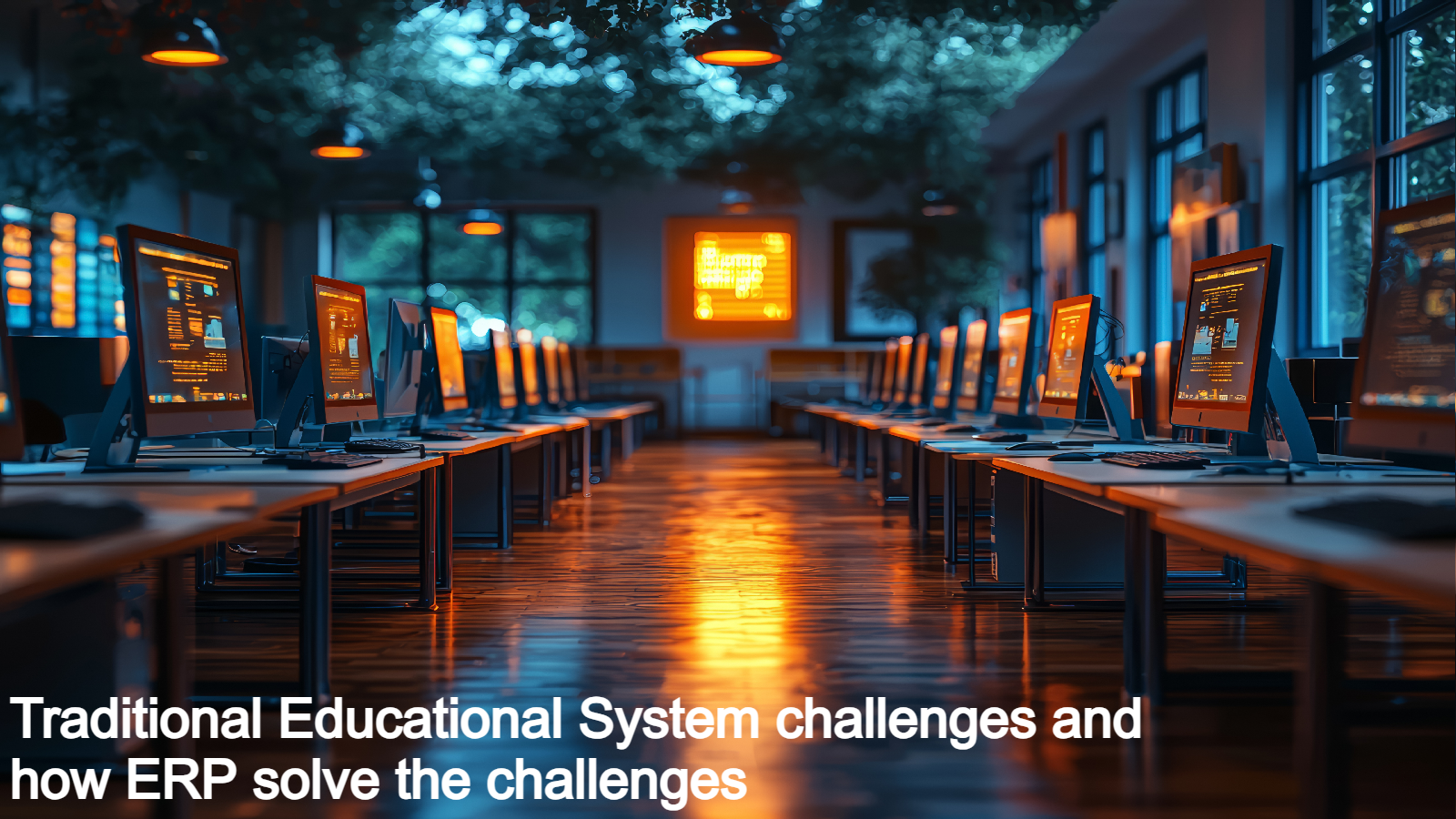Introduction
In the fast-paced world of higher education, the efficient management of resources is crucial for ensuring seamless operations. Enter Enterprise Resource Planning (ERP), a comprehensive system that has become the backbone of numerous universities worldwide.
In this blog post, Today, we explore why ERP is a game-changer, paving the way for enhanced efficiency, transparency, and academic excellence.
Understanding ERP
ERP, or Enterprise Resource Planning, is a software solution designed to integrate various business processes within an organization. In the context of universities, ERP plays a pivotal role in consolidating academic, administrative, and financial functions into a unified platform. This not only streamlines operations but also provides an overall view of the institution’s activities.
The Malaysian Higher Education Landscape
Malaysia boasts a diverse range of universities, each with its own set of academic programs, administrative structures, and student populations. The rapid growth and globalization of higher education in the country have led to increased complexities in managing these institutions efficiently. This has led to educational institutions leveraging new and modern technology such as ERP software.
The Importance of ERP in Malaysian Universities
Streamlining Administrative Processes
Malaysian universities often face challenges related to manual administrative processes. ERP systems automate these processes, including admissions, student registration, and examination management, reducing the burden on administrative staff.
According to a study by the Ministry of Higher Education in Malaysia, the implementation of ERP resulted in a 30% reduction in administrative workload across universities.
Enhancing Financial Management
Efficient financial management is paramount for the sustainability of any institution. ERP systems enable real-time monitoring of budget allocations, expenditures, and revenue streams.
A report by the Malaysian Association of Private Colleges and Universities (MAPCU) indicates that universities using ERP experienced a 20% improvement in financial accuracy and a 15% reduction in financial discrepancies.
Improving Academic Planning and Student Management
ERP facilitates effective academic planning by providing insights into course demand, faculty availability, and resource allocation.
Student management is streamlined through features such as online registration, grade tracking, and student performance analysis. This has led to a 25% reduction in student enrollment errors, as reported by several universities in Malaysia.
Facilitating Data-Driven Decision-Making
Informed decision-making is a cornerstone of successful institutions. ERP systems provide comprehensive data analytics tools, empowering university administrators to make strategic decisions based on real-time insights. A case study of a leading Malaysian university reported a 40% increase in data-driven decision-making after the implementation of ERP.
Ensuring Regulatory Compliance
Malaysian universities must ensure strict regulatory standards set by the Ministry of Higher Education. ERP systems help in adhering to compliance by automating the tracking of regulatory requirements and reporting.
Compliance-related incidents decreased by 18% in Malaysian universities after the adoption of ERP, according to a report by the Malaysian Quality Assurance Agency (MQA).
Fostering Collaboration and Communication
Collaboration among different departments is vital for the smooth functioning of a university. ERP systems provide a centralized platform for communication and collaboration, breaking down silos.
A survey conducted across Malaysian universities revealed a 35% improvement in interdepartmental communication and collaboration post-ERP implementation.
Conclusion
The implementation of ERP in Malaysian universities is not merely a technological upgrade but a strategic move towards fostering excellence in higher education. The statistics highlight the benefits that ERP brings to administrative efficiency, financial management, academic planning, decision-making, regulatory compliance, and overall collaboration.
As the academic landscape in Malaysia continues to evolve, universities embracing ERP are better positioned to navigate the challenges and provide an enriched educational experience for both students and staff. The integration of ERP systems marks a significant step towards a future where Malaysian universities stand as models of efficiency, innovation, and academic success.
Frequently Asked Questions (FAQs)
What is ERP, and how does it benefit universities in Malaysia?
ERP, or Enterprise Resource Planning, is a comprehensive software solution designed to integrate various business processes within an organization. In Malaysian universities, ERP streamlines administrative processes, enhances financial management, improves academic planning, facilitates data-driven decision-making, ensures regulatory compliance, and fosters collaboration.
How can ERP streamline administrative processes in universities?
ERP automates various administrative processes such as admissions, student registration, and examination management. This significantly reduces the burden on administrative staff, leading to increased efficiency. According to a study by the Ministry of Higher Education, ERP implementation resulted in a 30% reduction in administrative workload across universities in Malaysia.
What impact does ERP have on financial management in universities?
ERP systems enable real-time monitoring of budget allocations, expenditures, and revenue streams. Reports from the Malaysian Association of Private Colleges and Universities (MAPCU) indicate a 20% improvement in financial accuracy and a 15% reduction in financial discrepancies after the implementation of ERP.
How does ERP contribute to academic planning and student management in Malaysian universities?
ERP provides insights into course demand, faculty availability, and resource allocation, facilitating effective academic planning. Student management is streamlined through features such as online registration and grade tracking, leading to a 25% reduction in student enrollment errors, as reported by several universities in Malaysia.
Can ERP systems support data-driven decision-making in universities?
Yes, ERP systems provide comprehensive data analytics tools that empower university administrators to make strategic decisions based on real-time insights. A case study of a leading Malaysian university reported a 40% increase in data-driven decision-making after the implementation of ERP.
How does ERP ensure regulatory compliance in Malaysian universities?
ERP systems automate the tracking of regulatory requirements and reporting, ensuring that universities adhere to strict standards set by the Ministry of Higher Education. According to a report by the Malaysian Quality Assurance Agency (MQA), compliance-related incidents decreased by 18% in Malaysian universities after the adoption of ERP.
How does ERP foster collaboration and communication among different university departments?
ERP provides a centralized platform for communication and collaboration, breaking down silos between different departments. A survey conducted across Malaysian universities revealed a 35% improvement in interdepartmental communication and collaboration post-ERP implementation.
Is ERP implementation a complex process for universities in Malaysia?
While ERP implementation requires careful planning and execution, many universities in Malaysia have successfully implemented ERP systems. Engaging with experienced ERP providers and providing adequate training to staff can significantly ease the transition.
Can small universities in Malaysia benefit from ERP implementation?
Yes, ERP systems can be scaled to suit the needs of small universities. Smaller institutions can benefit from the efficiency gains, improved data accuracy, and streamlined processes that ERP brings, contributing to overall growth and development.
Are there any success stories of ERP implementation in Malaysian universities?
Several Malaysian universities have reported success stories post-ERP implementation. These include notable improvements in administrative efficiency, financial accuracy, data-driven decision-making, and overall collaboration. One such case study is of MAHSA University where they utilized Elvis Education ERP to transform the operations.








